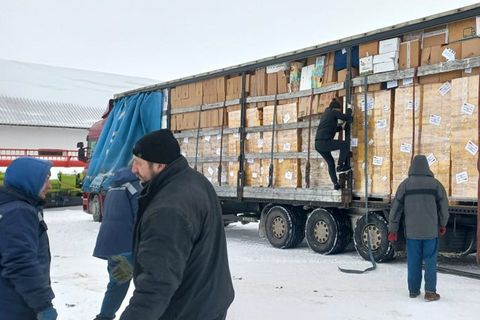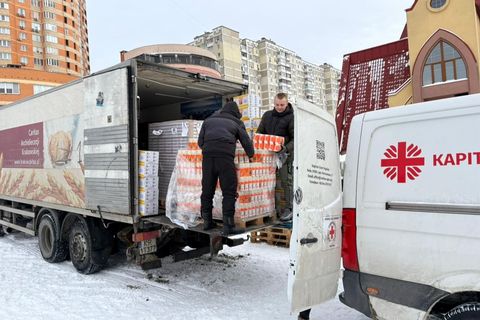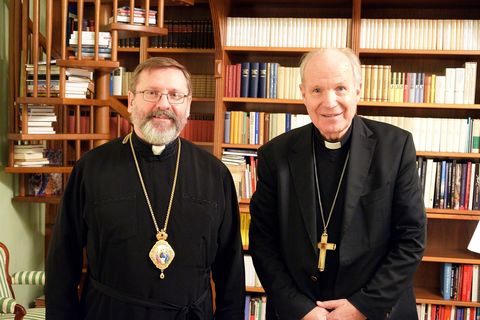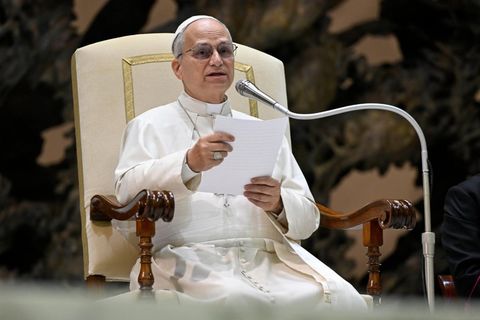Priest from Kherson tells about the consequences of the Kakhovka hydroelectric power plant explosion
Father Ignatius Moskalyuk, OSBM, rector of the Basilian monastery of St. Volodymyr the Great in Kherson, comments on the situation caused by the Russians’ explosion of the Kakhovka hydroelectric power plant and shares how his community is coping with the grievous events of the war.
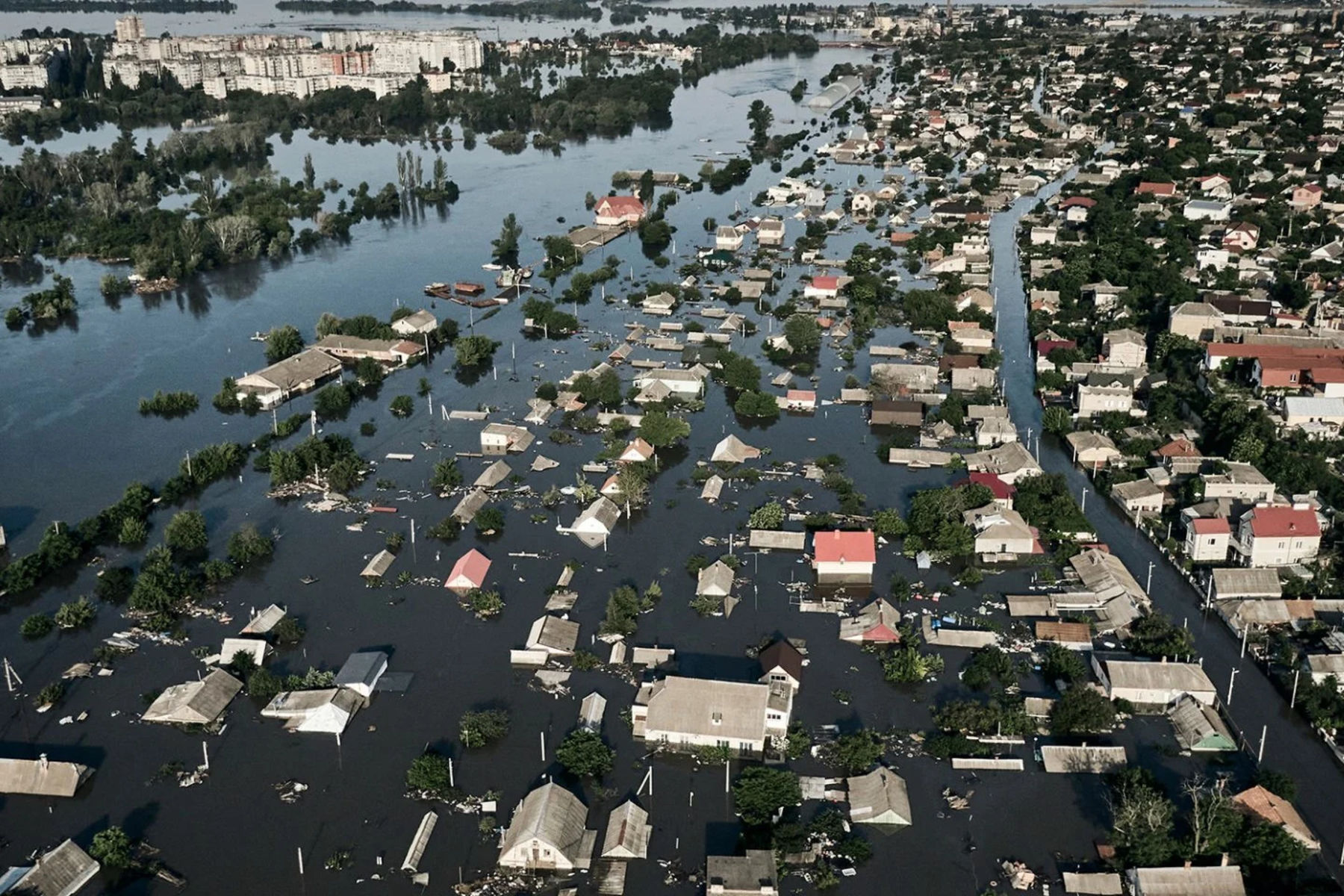
“The situation in Kherson is critical, perhaps not so much in the city itself as in the region, in those coastal areas above the Dnipro River, because the water is constantly rising,” said Fr. Ignatius Moskalyuk, OSBM, rector of the Basilian Monastery of St Volodymyr the Great in Kherson, in an interview with Vatican Radio — Vatican News, commenting on the situation in the city and the region, aggravated by the explosion of the Kakhovka hydroelectric power station.
He added that about 15 % of Kherson’s territory is at risk of flooding. First of all, we are talking about the Korabelny and Ostriv neighborhoods. “People are being evacuated from this place. Ukrzaliznytsia is also helping, providing evacuation trains to Kherson so that people can be taken out,” he emphasizes, adding that efforts are being made to prevent crowded situations, “because it is dangerous — Russian troops can strike at civilians.”
When asked what the consequences of the dam breach might be, Fr. Ignatius said, “The environmental consequences will be very severe because nature, crops, and animals suffer.” “Many places have already suffered severely. For example, the zoo in Kakhovka is completely flooded,” he said. According to him, there is a threat of water and electricity shortages in affected settlements.
The hegumen noted that their monastery is on a hill, so they are not in danger of flooding. “We are trying to be ready to help people if they ask for help. We will help as much as we can,” he emphasized.
Father Ignatius and one of his fellow monks had stayed in their monastery since the beginning of the full-scale invasion, even when Kherson was under Russian occupation. He shared how they are going through all these tragic events: “I always recall the words of Pope Francis, who said that one cannot get used to war. But human psychology is such that people tend to adapt to even those explosions. The people who live here, people like me, no longer even react to these shots, to all that is happening. It may be wrong, but this is how human psychology works. Of course, there is a constant threat to life, and people here don’t know whether they will live to see the morning. And psychologically, this is depressing. But at the same time, it helps us to rely on God more and to give everything into the hands of God’s mercy. That’s how we live in the monastery, putting everything in the hands of God’s mercy.”
The UGCC Department for Informationbased on the materials Vatican News
